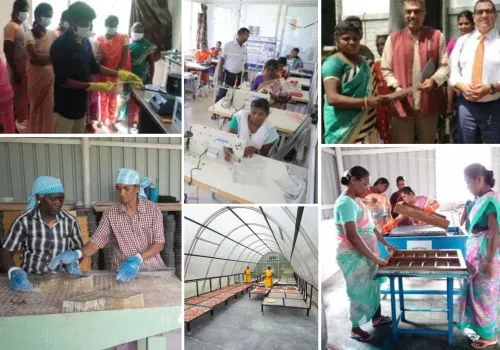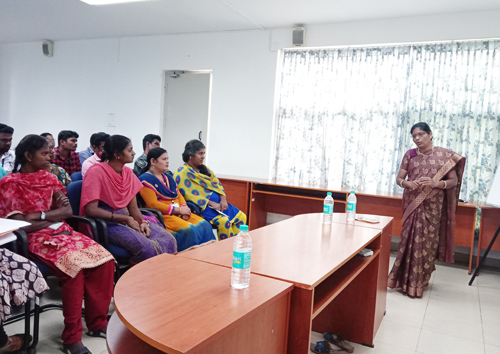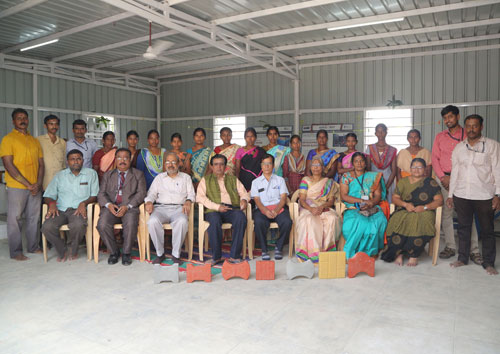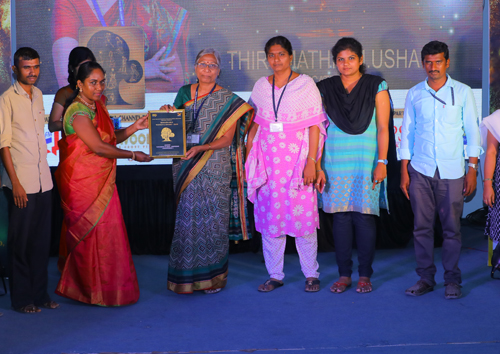

NAAC-Accredited 'A++' - Grade 2(f) & 12(B) status (UGC) |ISO
9001:2015 Certified | FIST Funded (DST) SIRO(DSIR)

Hand Sewing Machine for Differently-abled women
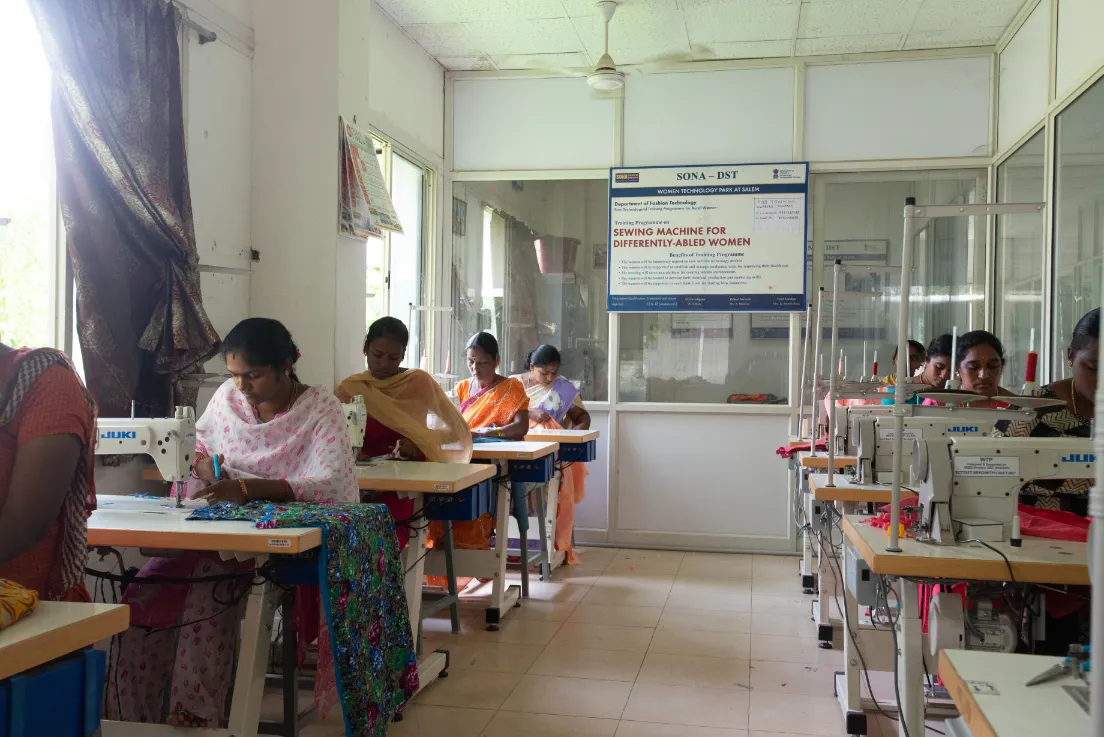
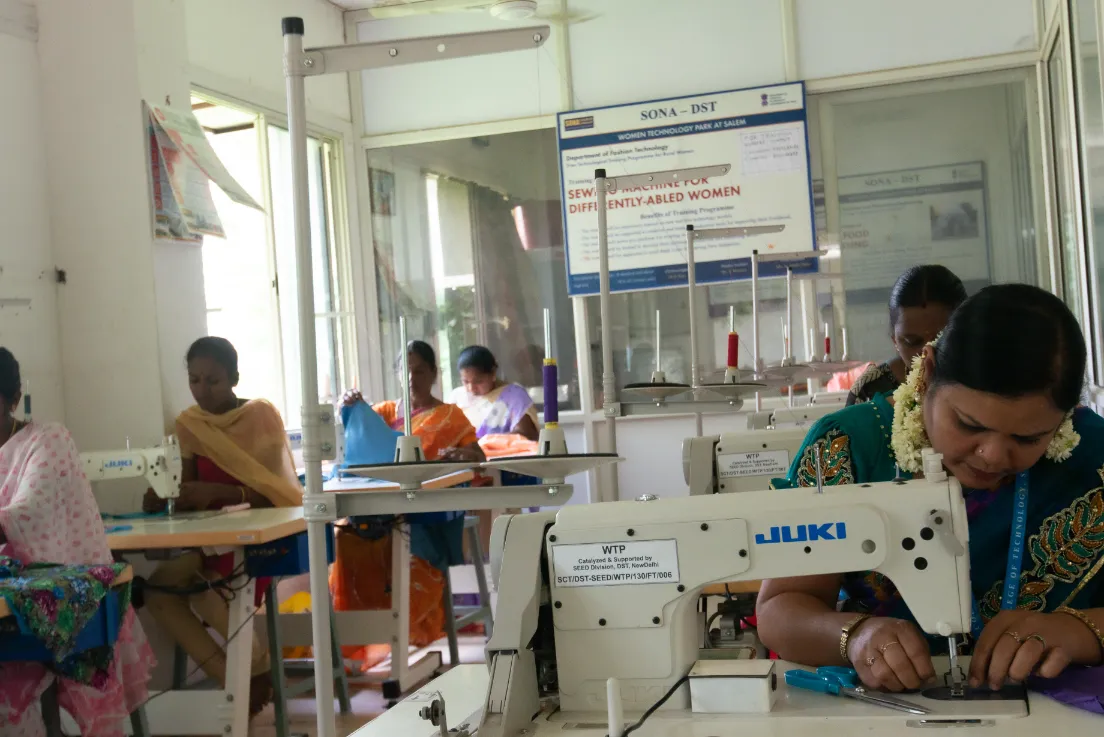
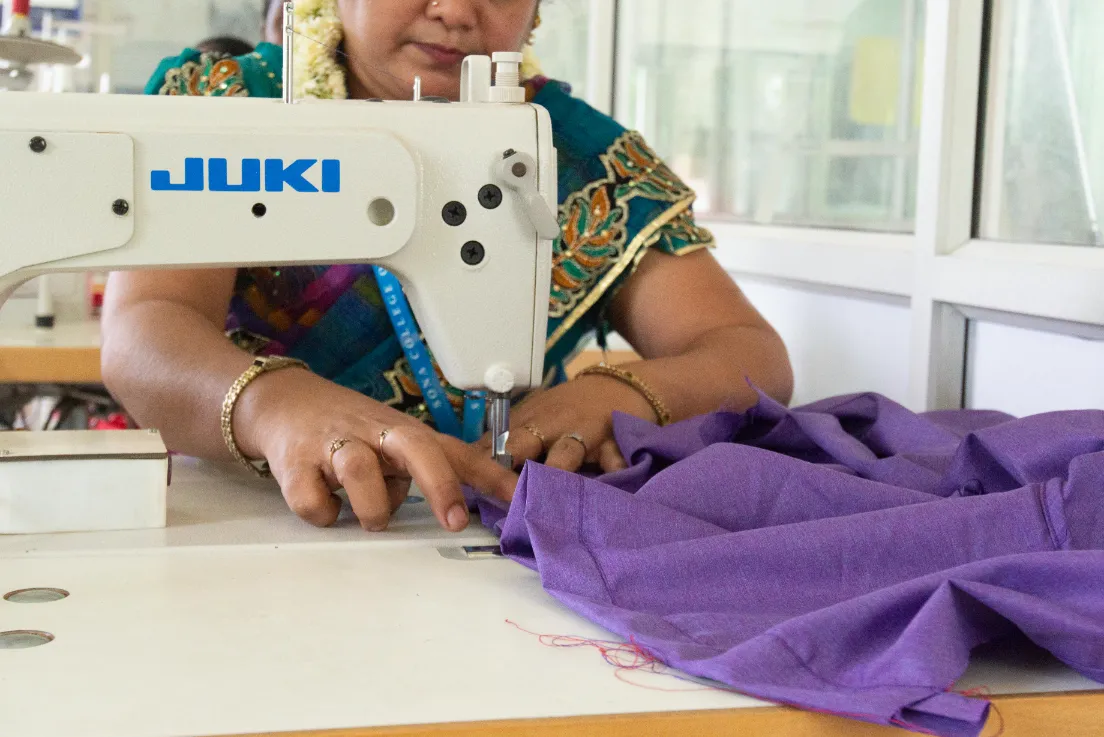
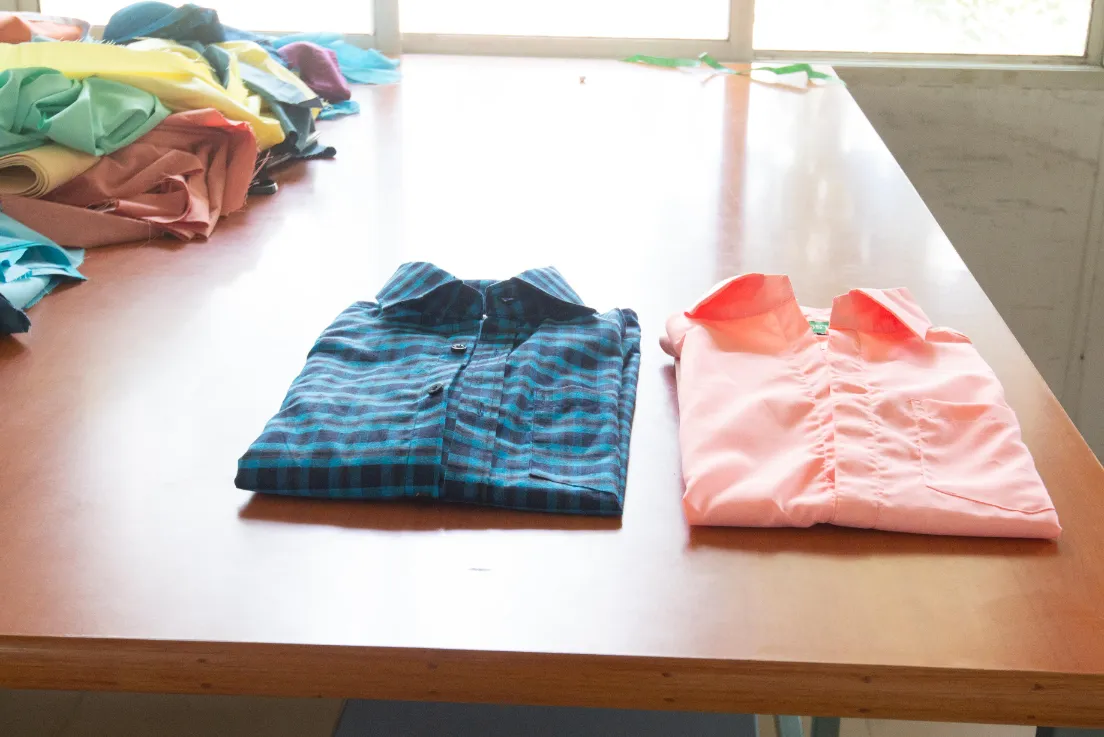
Differently-abled women earn respect and living by using custom sewing machine
How Sona College’s assistive technology has transformed regular industrial sewing machines
- Sewing machine with technology innovation a boon for the differently-abled
- Assistive technology helps women overcome physical limitations to match productivity, earn a living
- Differently-abled women turn corona warriors by sewing face masks
- Machine for differently-abled is now patented

In one of the workshops to train rural women for a career in sewing in the garment industry, the trainers at the Fashion Technology Department noticed that a few differently-abled women’s restricted limb movement was turning out to be a limitation. The trainer saw that these women wanted to rise above the obstacles and had the zeal to become independent.
The Fashion Technology department faculty who had been training different groups of rural women to operate industrial sewing machines wanted to do something to help these women rise. They then set out to see what technology interventions could be done and the 4-member faculty team of D. Raja, K. Mani, G. Gunasekaran and S. S. Suresh successfully modified the industrial sewing machine with assistive technology that could be operated solely by hand.
The machine was tested by a handful of rural women with locomotor disability and it did not take long for the innovation to become the talk of the town. The machine was fitted with a load cell sensor, which could detect hand pressure which was later converted into the required electric signal.
This enabled any differently-abled person who could not use lower limbs to perform various sewing operations – as is the standard for the industrial sewing machines – with ease and with the same efficiency as any other human.
As many as 150 women have been trained to operate these machines, opening up a world of new opportunities for them, so that they could break away from the shackles of their limitations and boost their self-esteem and lives of their families.
One such woman, Kaveri*, shared her elation, “I wear a special shoe, but after being introduced to the Sona College machine, I no longer feel I am different. I feel more confident than ever before and that I can make a living for myself and my family.”
“We have seen these women evolve into expert garment makers as the machine enables them to perform complex sewing tasks and perform at par with the rest. We continue to train more women,” shared D. Raja, Professor and Head, Department of Fashion Technology.
The modified sewing machine has received a patent and today, many differently-abled women are considering opening their own tailoring units that could utilize the skills of many others who are facing challenges in their lives.
The Tamil Nadu government has sponsored these patented sewing machines for livelihood support for differently-abled women at a Sona College run community centre in Maramangalathupatti, Salem district.
More women and welfare departments governments are expected to fund these innovative sewing machines as a livelihood support measure.
The Fashion Technology department is in discussion with large sewing machine manufacturers for technology transfer. The students of the department are engaged in studying this innovative project for further research and use by large garment export firms.
The Fashion Technology department teams continue to research many more innovations.
The project, initiated with a grant under the Technology Development Programme of the Department of Science & Technology, Government of India in 2017, was recognised as one of the successful projects in 2022. It operated under the Women Technology Park initiative of Sona College of Technology and is now driven the by the Department of Fashion Technology & the Centre for Social Responsibility Initiatives.
